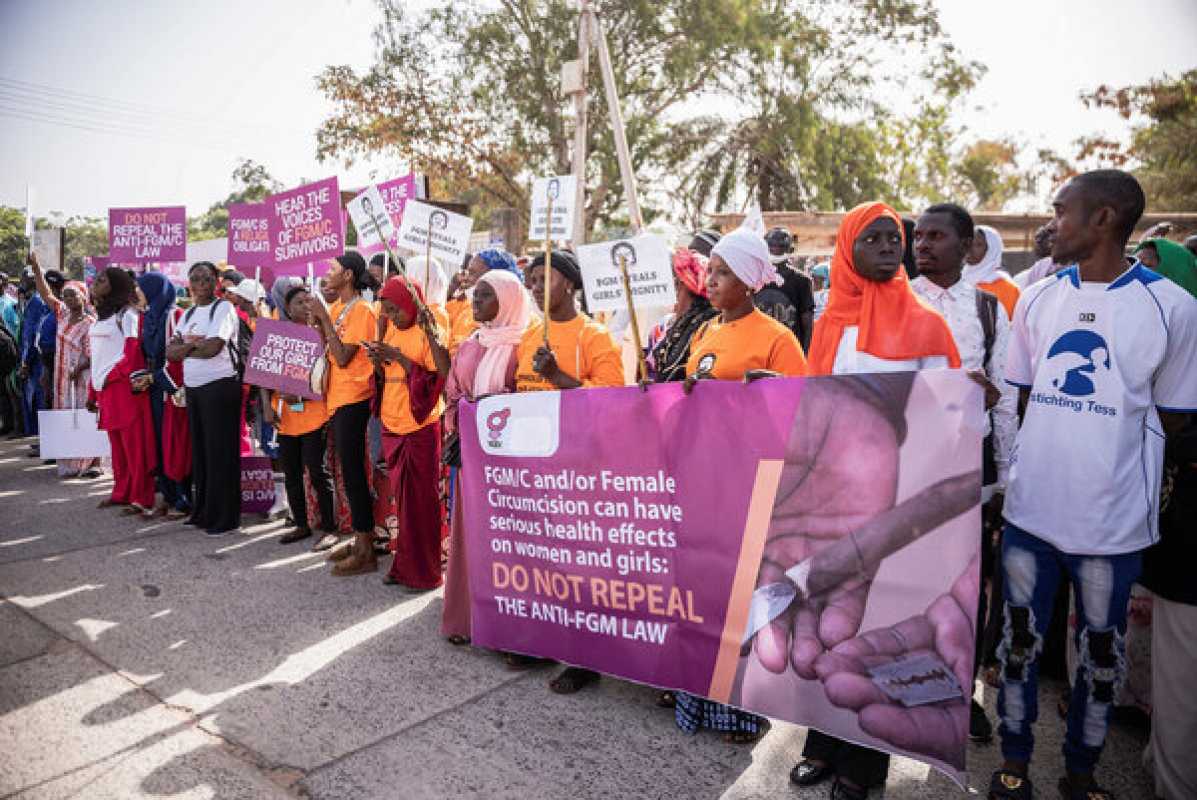World
Gambia’s National Assembly Advances Bill to Revoke Ban on Female Genital Cutting

Gambia‘s National Assembly has voted to advance a bill that would overturn a ban on female genital cutting, putting this tiny West African country on a path to being the first nation in the world to roll back such a protection.
Many of the women who filed into the National Assembly building on Monday to witness the proceedings had experienced the horror that comes with cutting, which has been practiced for generations here.
One woman said she was taken by her family at age 8 to a ceremony in which she was pinned down and cut. Another learned on her wedding night that her vaginal opening had been sealed. A third experienced years of infections and later infertility after being cut without her parents’ permission.
The women listened stoically as members of parliament — the vast majority of them men — pounded their gavels in support as Almameh Gibba, the lawmaker who introduced the bill, described it as intended to “uphold religious rights and safeguard cultural norms and values.” The ban on cutting, he said, represents a “direct violation of citizens’ rights to practice their culture.”
At the session, 42 of 47 parliament members voted to move the bill forward, teeing up months of national dialogue and possible amendments before a final vote on whether to revoke the 2015 ban. If Gambia ultimately moves forward, activists said they fear the decision — which the United Nations says would mark a global first — could lead other nations to follow suit.
Already, the United Nations says that about 75 percent of girls and women in Gambia between the ages of 14 and 49 have been subject to genital cutting, which is often described by opponents as female genital mutilation, or FGM. Globally, more than 200 million women and girls are estimated to be survivors of female genital cutting, which can involve removing part of the clitoris and labia minora and, in the most extreme cases, a sealing of the vaginal opening. Medical experts say the procedures, which do not have medical benefits, can cause a range of short- and long-term harms, including infections, severe pain, scarring, infertility and loss of pleasure.
“It is a rollback on women’s rights and bodily autonomy,” said Jaha Dukureh, a Gambian activist whose little sister died as a result of a botched procedure and who found out on her wedding night, at 15, that she had been sealed as a baby. “It is a rollback in terms of telling women what to do with their own bodies. This is all this is.”
As Dukureh was speaking to a journalist in the National Assembly, a former government official and proponent of the bill, Mai Ahmad Fatty, stopped to talk. He said that in Gambia, female circumcision, rather than female genital mutilation, is practiced. Dukureh told him that she knew best what had happened to her own body, and that it was mutilation.
“You are denying [us] as women who have been through FGM,” she said. “You are telling us that what we are saying is a lie.”
Gambia, which was carved out of Senegal during British colonial rule, is a country of about 2.5 million where news travels fast. And since last year, when three women were convicted of practicing female genital cutting, much of that news has focused on the practice, spawning a countrywide discussion about religion, culture, patriarchy, and reproductive health and sexuality.
One of Gambia’s most prominent imams, Abdoulie Fatty, paid the fines of the women who were convicted, saying that the practice was taught by the prophet Muhammad, and then launched a campaign to overturn the ban, leading to Gibba’s bill. There has been debate about the practice in Islam, but many Muslim leaders have condemned it, and in many Muslim-majority countries it is not widespread.
Outside the National Assembly on Monday, women and men holding signs that read, “Girls need love, not knives” squared off against Muslim clerics who were preaching to dozens of veiled girls from Islamic schools. They cheered as one cleric told them circumcision was justified by religion.
Inside the building, where only five of Gambia’s 58 lawmakers are women, the discussion Monday was dominated by men.












